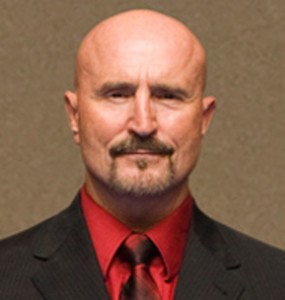A Sensei’s powerful teaching Technique
By Ray Hughes
In the mid-eighties and teaching for roughly ten years, I realized that my teaching technique was not as effective as I wanted it to be. My school was doing fine, but I wanted better results.
As I started wrestling with this dilemma, I began with the assumption that I responded to instruction the same as most people. I reflected on which teaching techniques turned me off and which teaching philosophies motivated and inspired me.
During the 70’s and 80’s there were two distinct types of instructors. The majority, both Japanese and American, were very condescending in their instruction. They knew all and wanted everyone to know it. They expected you to obey. The minority, however, were wise instructors who came across humble, seemed to have the student’s interest in mind, and delivered their message in an unusual, distinct manner. They not only taught karate technique, they also taught philosophy.
It was at this time I realized that what I thought was a unique personal trait was actually a generic
human trait; that trait was “no one liked to be told anything.” Though I knew I was worse than most, it was still a powerful enlightenment.
These condescending instructors were going against this human nature. Though there were those few students who happily followed like sheep, most grudgingly tolerated their instruction. These instructors used power and fear to maintain their base; obviously not conducive to keeping many students long term. In addition, a negative by-product was developed – similar type instructors. Many of which still exist today.
The great teachers did not go against this natural instinct. In addition, they used “self-disclosure” when teaching karate technique and philosophy. This combination was extremely powerful. Rather than “telling” people what to do per se’, they would describe the technique the way “they” understood it and what they did to develop it. They did not talk negatively about other styles and instructors. When discussing philosophy, they would talk about how they handled similar past problems or situations the students were experiencing at that moment. They would disclose what worked and what didn’t work. They would give pointers on how they would have handled it differently; resisting giving advice.
This teaching philosophy resonated well with the students. Martial art students already knew humility was a part of the art. These teaching techniques showed the students that the teacher was humble and it created empathy for the instructor. Knowing the instructor had already experienced what they were now experiencing brought down the walls of resistance to learn new things. The students wanted to follow. Isn’t this an example of what the term “Sensei” means, “one who has gone before”? All of us are not karate teachers, but we are all teachers in one form or another. This teaching philosophy of “self disclosure” and not going against the human nature of “not wanting to be told anything” has been proven in all fields. This philosophy works well in parenting.
The wise teacher understands that no one wants to be told anything, knows that everyone must experience and make mistakes, and leads but does not force. The wise teacher knows he is not better than the student; simply a person who has made more mistakes over a longer period of time. The wise teacher is truly a “Sensei”.
We must all strive to be wise teachers.



